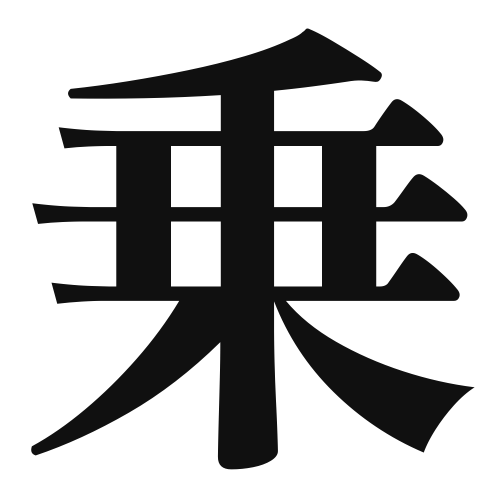1. Overview of Meaning
The kanji “乗” (pronounced “noru” in Japanese) primarily means “to ride” or “to get on.” It is commonly used in contexts related to transportation, such as riding a train, bus, or bicycle.
2. Formation and Radical
Formation of the Kanji: The kanji “乗” is a phonetic-ideographic character (形声文字). It combines the meaning of “to ride” with phonetic elements that suggest its pronunciation.
Radical: The radical for “乗” is “乗” itself, which is often associated with movement or transportation.
3. Examples of Usage
Common Words and Phrases: Some frequently used words that include “乗” are:
- 乗車 (じょうしゃ, jousha) – boarding a vehicle
- 乗り物 (のりもの, norimono) – vehicle
- 乗る (のる, noru) – to ride/get on
Example Sentences in Daily Conversation:
- バスに乗ります。 (ばすにのります, Basu ni norimasu.) – I will get on the bus.
- 自転車に乗るのが好きです。 (じてんしゃにのるのがすきです, Jitensha ni noru no ga suki desu.) – I like riding my bicycle.
4. Synonyms and Antonyms
Similar Kanji: A similar kanji is “搭” (とう, tou), which also means “to board” but is often used in the context of boarding an aircraft or ship.
Antonyms: An antonym for “乗” is “降” (こう, kou), which means “to get off” or “to descend.”
5. Cultural and Historical Background
Relation to Japanese Culture: The concept of riding is significant in Japanese culture, especially with the extensive use of trains and public transportation. The kanji “乗” reflects the importance of mobility in daily life.
Proverbs and Idioms: One common idiom is “乗り遅れる” (のりおくれる, noriokureru), which means “to miss the ride” or “to be late,” often used metaphorically to indicate missing an opportunity.
